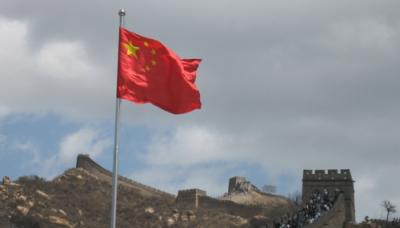The Chinese Government’s attempts to censor the Internet continues, with its ‘Great Firewall’ deleting 350 million pieces of harmful information as part of its 2010 campaign to clean up the web by shutting what it judged to be harmful sites.
Government officials touted the success of its extensive system of filtering and blocking Internet content in 2010, saying the Internet is “cleaner than before.”
More than 350 million pages, or “pieces of harmful information,” which includes text, pictures and videos, have been deleted, and 60,000 adult content websites were shut down, said Wang Chen, head of the State Council Information Office, during a press conference on 30 December, according to Reuters.
Cultural Improvements
“There was a notable improvement in the online cultural environment,” Wang said.
Wang said the government checked 1.79 million websites and rounded up 4,965 people suspected of spreading lewd content. Of those suspects, 1,332 people received “criminal punishment” and 58 were jailed for five years or longer.
Critics have accused the government’s campaign of censorship, often referred to as the “Great Firewall,” of shutting down Chinese sites with politically sensitive information and user-generated content. The Chinese government defines “obscenity” rather broadly, as it has shut down sites with Flash games and political commentary in the past.
In comparison, China only shut down 15,000 websites in 2009 for having “obscene” material, deleted 1.5 million pages, shut down 136,000 websites and convicted 1,580 people, according to China’s General Administration of Press and Publication reported by the China Daily.
The deleted sites don’t include content already blocked in the first place, such as Twitter, Flickr, YouTube and Facebook. China also added Skype on its list of blocked services in December.
Informant Pay-off
The government received more than 160,000 tips from members of the general public on sites to investigate, and one of the departments involved in censoring the Internet paid out about $81,964 (£52,784) to 516 informants in 2010, Xinhua, the official state-run news agency, reported in November.
A branch of China Mobile reportedly invited 20 mothers of teenagers to help monitor and find questionable websites, Xinhua said.
China has more than 450 million users online, an increase of 20.3 percent since 2009, said Wang. There is plenty of room for growth, as that accounts for less than half of the current population, which is 1.3 billion. The country implemented new regulations in 2010 regarding mobile phone users and website operators, ostensibly to prevent harmful online content from reaching children.
 The Internet base is more or less untapped by some of the major Internet giants, since the Chinese government refused to let them operate. For example, Google first stopped censoring search results on its China-based Google search service and then shut down the service after a sophisticated cyber-attack compromised Gmail accounts.
The Internet base is more or less untapped by some of the major Internet giants, since the Chinese government refused to let them operate. For example, Google first stopped censoring search results on its China-based Google search service and then shut down the service after a sophisticated cyber-attack compromised Gmail accounts.
It wasn’t a big loss for Chinese users, as Baidu dominated the country’s search engine market, but it underscored the difficulty of foreign companies competing in China. There are a number of Facebook and Twitter clones in China thriving, such as RenRen and Sina Weibo, as well.
Wang said Facebook’s chief Mark Zuckerberg, who had visited China recently, had not met with his department. “We saw reports that he met with some well-known figures in China’s Internet industry,” said Wang. “We are also still trying to learn more about his visit to China.”





